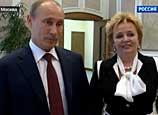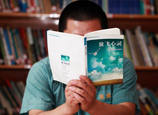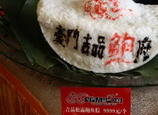
TIANJIN, June 7 (Xinhua) -- China's private equity firms, sitting on over 130 billion U.S. dollars in assets, are now having a hard time cashing out, as IPOs proposed by Chinese companies have been essentially frozen.
PE firms in China generally cash out by allowing companies to go public. But cash pipelines have been squeezed both at home and abroad.
The China Securities Regulatory Commission (CSRC) has been suspending IPO applications in order to clamp down on fraud and restore confidence in the Shanghai and Shenzhen indexes, two of the world's worst performers. Meanwhile, short selling and accounting scandals have killed enthusiasm in Chinese stocks listed in the U.S., prompting many Chinese companies to get out rather than step in.
However, analysts say the freezing of IPO applications is encouraging China's PE industry to become more mature -- buyout firms are now looking to close their investments by selling to other buyout firms or companies looking for mergers and acquisition, two common practices in advanced economies.
"Although it's just been a few months since the IPOs were halted, the market is seeing signs of an acquisition wave," said a senior manager at Beijing-based Defone Fund.
Liu Zhenjie, head of the business center at the Binhai International Equity Exchange, said his exchange platform has been receiving a surging number of buyout funds seeking to transfer stakes.
PE firms investing in industries beset by overcapacity, such as the steel industry, are most likely to embrace a spike in M&A deals, market insiders say, especially in light of China's slackened economic recovery.
Selling stakes back to controlling shareholders or management is viewed as another exit strategy PE firms may favor.
Most private equity investors in China choose to hold a minority stake in aspiring family businesses. These companies are directly managed by their founders, who typically refuse to give up control.
"The owners would be very upset if you told them to sell their company," said Isaac Li, general manager of Hiway Capital, a Guangzhou-based fund.
Although the IPO freezing has been promoting fund-to-fund deals, the secondary buyout market, through which one fund is sold to another, is in the doldrums.
Chinese PE firms rarely succeed in making fund-to-fund deals. The number of transactions completed since the industry started expanding six years ago has been trivial.
"Secondary deals present much lower returns than IPOs. It's hard to tell how much lower exactly, but people prefer to wait for an IPO restart," said Jack Cheug, investment director at Beijing-based Noble Fund Management.
The resumption of Chinese IPOs has been postponed several times, as authorities fear new listings will sink China's share prices, which have just begun to pick up after sagging to four-year low.
Media reports indicated that the earliest time for an IPO restart would be the end of October, with more than 600 offerings anticipating CSRC approval, even after stricter inspections scared away about 300 applicants.
Fund managers say they have time to wait, as they now tend to hold companies for longer periods of time compared to five years ago.
Some private equity investors have also started to look for fledgling businesses in addition to companies that have already taken off. They have bought businesses that are in their infancy with the goal of selling them to other PE firms.
Meanwhile, prospects for U.S. listings are becoming brighter. China's securities watchdog and the U.S. Public Company Oversight Board signed an audit deal last month that allows both sides to assist each other in obtaining information.
The move has been described as a key step in opening the door for probes of bungled audits of U.S.-listed Chinese companies, as well as restoring U.S. investor confidence in China concept stocks.
Alternative stock exchanges are also hoping to woo Chinese companies. Japanese markets have stepped up efforts to reach out to Chinese clients, taking advantage of the bullish Nikkei exchange, according to Jin Shunxia, Beijing representative for the Tokyo Stock Exchange.
















 Bodyguard trainees experience 'Hell Week' in Beijing
Bodyguard trainees experience 'Hell Week' in Beijing


![]()
